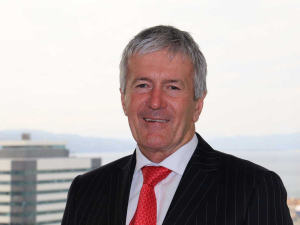Damien O’Connor: NZ united on global trade
When it comes to international trade, politicians from all sides of the aisle are united, says Labour's trade spokesman Damien O'Connor.
 Agriculture Minister Damien O’Connor says New Zealand must look to new ways of operating in a very changed global environment.
Agriculture Minister Damien O’Connor says New Zealand must look to new ways of operating in a very changed global environment.
As a result of COVID-19, the world has learned to operate, communicate, and negotiate online.
That is the view of Agriculture Minister, Damien O’Connor, who says New Zealand must look to new ways of operating in a very changed global environment.
O’Connor thinks NZ will be able to progress its trade agenda through the electronic media and at the same time reduce costs.
“I have had a lot of discussions with entrepreneurs, Tim Brown from Allbirds being one of them, on a zoom call, and he’s excited by the opportunities post-COVID can provide,” he told Rural News.
“I think if we focus on those people, who see those opportunities, and support and work with them, New Zealand will have an incredible future providing some of the finest food and fibre into a world that will have higher level of awareness of health attributes and the value of nutrition.”
O’Connor says online is likely to become the norm in terms of selling NZ products in overseas markets.
“If we end up with products that can go direct to consumers and utilise airfreight from NZ more often, then we can take advantage of the opportunities in Asia. If we do our job right, I am sure the demand will outstrip supply,” he says.
O’Connor has been kept informed about Trade Minister David Parker’s efforts to keep the trade conversations going during the pandemic.
He says there is obvious uncertainty about how countries will react post-COVID.
One issue of concern is protectionism as countries deal with high unemployment.
“Pre-COVID, there were many countries that were looking for any excuse to close the borders more, and COVID has provided a bit of an excuse for some of that,” he adds.
“We are just going to have to work a bit harder, knock on doors and explain the value of continuing to trade. This is because we absolutely rely on it and there many other countries around the world that benefit from this – even if they perhaps don’t realise that.”
Life in Level 3
Damien O’Connor says the move to Alert level 3 is not a huge change, but it sets a positive direction for the economy – with forestry and floriculture two industries that will now be allowed to operate.
He says Level 3 will likely allow meat companies to lift throughput as social distancing is reduced from two to one metre. But O’Connor says under Alert level 4 many companies have already been innovative and found ways of meeting the strict health and safety standards, while at the same time increasing throughput.
He says that some processing works may effectively remain in Level 4 to protect their staff.
“Workers, like other New Zealanders, are concerned about the possible spread of Covid-19 and until we have got rid of the disease there will be some apprehension in every part of our community and economy,” O’Connor told Rural News.
“So, the transformation will not be dramatic, and neither should it be. It will be about ongoing improvements, while keeping in mind our obligations to meet this challenge.”
Global dairy prices are on a roll, recording a fourth consecutive jump on the Global Dairy Trade (GDT) auction this year.
Booming primary sector exports are helping lift earnings for farm service providers.
The world is waking up to the disadvantages of carpets derived from petrochemicals, creating opportunities for New Zealand strong wool.
The red meat sector finds itself in "a very rare set of circumstances", says Federated Farmers meat and wool industry chair Richard Dawkins.
Agrisea NZ has appointed Craig Hudson as it's new chief growth officer.
State farmer Landcorp, trading as Pamu, is a forecasting a full-year net profit of around $100 million.